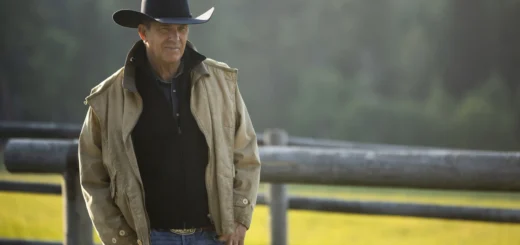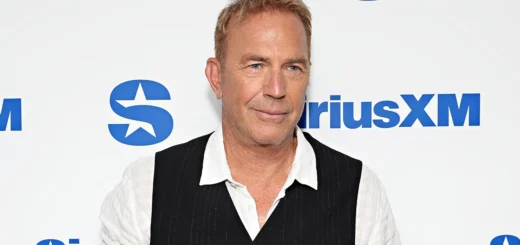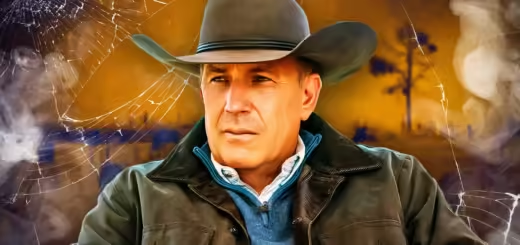The Essential Kevin Costner: 10 Films That Define His Career
Kevin Costner’s 10 Essential Films, Reimagining the American Hero
Kevin Costner has never needed to raise his voice to command attention. Over four decades, he’s quietly built a legacy of playing men defined not by swagger, but by restraint, conviction, and moral weight. Whether it’s a small-town ballplayer, a haunted gunslinger, or a conflicted father figure, Costner’s characters radiate an old-school decency—one that’s noble, flawed, and deeply American.
His most compelling performances often live in the margins—small gestures, fleeting expressions, a lingering silence. From Cold War thrillers to modern westerns and intimate historical dramas, these ten films showcase the many faces of Costner: the protector, the loner, the skeptic, and the myth-maker.
10. No Way Out (1987)
“Stop lying, Scott. You can’t keep track of all the lies you tell.”
A lean, high-stakes political thriller, No Way Out stands as one of Costner’s most underrated turns. He plays Tom Farrell, a naval officer caught in a tangled web of murder, surveillance, and deception in Washington’s power corridors. The Cold War backdrop may feel dated, but the tension and narrative sleight-of-hand still work today.
Costner gives Farrell a duality that keeps the audience guessing—romantic and calculating, loyal and suspect. His chemistry with Gene Hackman (as a ruthless Secretary of Defense) adds edge, and the twist ending remains a masterstroke of 1980s paranoia.
9. Man of Steel (2013)
“You are my son.”
Zack Snyder’s Man of Steel is often remembered for its heavy-handed spectacle—but in the eye of the storm is Costner’s Jonathan Kent, a refreshingly grounded take on Superman’s adoptive father. Here, Pa Kent is no longer just a folksy moral compass. He’s afraid, conflicted, and haunted by what his son’s powers might mean for the world.
In limited screen time, Costner brings surprising emotional resonance to a character wrestling with impossible questions. His performance anchors the film’s cosmic stakes in something intimate and human. The movie may be divisive, but Costner’s contribution isn’t.
8. Open Range (2003)
“Most times, a man’ll tell you his bad intentions if you listen, let yourself hear.”
Directed by and starring Costner, Open Range is a meditative Western that balances violence with introspection. As Charley Waite, a former gunslinger turned cattleman, Costner explores the weight of past sins and the cost of peace.
The climactic gunfight is one of the most realistic in modern Westerns—but it’s the quiet moments around the campfire, filled with moral reckoning and regret, that linger. Robert Duvall may steal the show, but Costner’s steady hand—in front of and behind the camera—gives the film its soul.
7. Hidden Figures (2016)
“Here at NASA, we all pee the same color.”
In this uplifting ensemble drama, Costner plays Al Harrison, the gruff NASA official whose evolution from passive obstruction to active ally mirrors the film’s broader themes. Though not the focus, Harrison becomes a crucial part of the story’s emotional arc.
Costner plays the role with subtle authority, especially in the scene where he demolishes a “Colored Bathroom” sign—not with righteousness, but with weary frustration. It’s a quiet but powerful moment that showcases his gift for understatement.
6. A Perfect World (1993)
“You’re not bad. You’re just ordinary. I’m not bad. I’m not just ordinary.”
In one of his most layered roles, Costner plays Butch Haynes, an escaped convict who forms a bond with the young boy he kidnaps. Directed by Clint Eastwood, the film plays like a cat-and-mouse thriller on the surface, but at its core is a nuanced meditation on innocence, trauma, and the contradictions of masculinity.
Costner walks a fine line between menace and vulnerability. His scenes with the boy are emotionally raw, and the film resists tidy resolutions. It’s one of his most quietly devastating performances.
5. Field of Dreams (1989)
“If you build it, he will come.”
Part sports film, part magical realist fable, Field of Dreams remains one of the most beloved entries in Costner’s career. As Ray Kinsella, an Iowa farmer who turns his cornfield into a baseball diamond, Costner brings emotional sincerity to a premise that could’ve easily collapsed under its own sentimentality.
The film’s power lies in its simplicity—fatherhood, faith, forgiveness—and Costner carries it with just the right mix of wonder and restraint. The final scene? A cinematic gut punch in the best way.
4. Bull Durham (1988)
“I believe there ought to be a Constitutional amendment outlawing Astroturf and the designated hitter.”
Costner’s turn as Crash Davis, a veteran minor-league catcher with a poet’s soul and a bruised heart, is pure magic. Bull Durham is more than just a baseball movie—it’s a romantic, funny, and surprisingly wise exploration of love, aging, and identity.
The chemistry between Costner, Susan Sarandon, and Tim Robbins crackles, but it’s Costner who gives the film its gravity. He turns Crash into the kind of romantic cynic who’s impossible not to root for.
3. The Untouchables (1987)
“Never stop fighting till the fight is done.”
In Brian De Palma’s operatic take on Prohibition-era Chicago, Costner plays Eliot Ness, the idealistic federal agent who goes head-to-head with Al Capone. Surrounded by flashy performances (Robert De Niro! Sean Connery!), Costner holds the center with moral clarity and emotional restraint.
He plays Ness not as a superhero, but as a man grappling with the limits of justice in a corrupt world. It’s an early showcase of the understated strength that would define much of his later work.
2. JFK (1991)
“Let justice be done though the heavens fall.”
Oliver Stone’s sprawling conspiracy epic hinges on Costner’s performance as New Orleans DA Jim Garrison. With rapid-fire editing and dense exposition flying at every turn, Costner is the grounding force—bringing focus, urgency, and emotional conviction to a film teetering on the edge of madness.
JFK doesn’t ask the audience to believe its theories—it asks them to care that questions remain. And Costner sells that search for truth with fire.
1. Dances with Wolves (1990)
“Nothing I have been told about these people is correct.”
Costner’s directorial debut is a sweeping, ambitious frontier saga—and one of the most surprising Oscar winners of its time. As John Dunbar, a Union officer who integrates into Lakota Sioux society, Costner defied expectations and delivered a film that was lyrical, humane, and visually stunning.
Clocking in at over three hours and featuring dialogue in Lakota, Dances with Wolves is a slow burn, but a deeply rewarding one. Costner’s performance is restrained, meditative, and anchored in quiet curiosity. It’s his most complete achievement as both actor and filmmaker.


